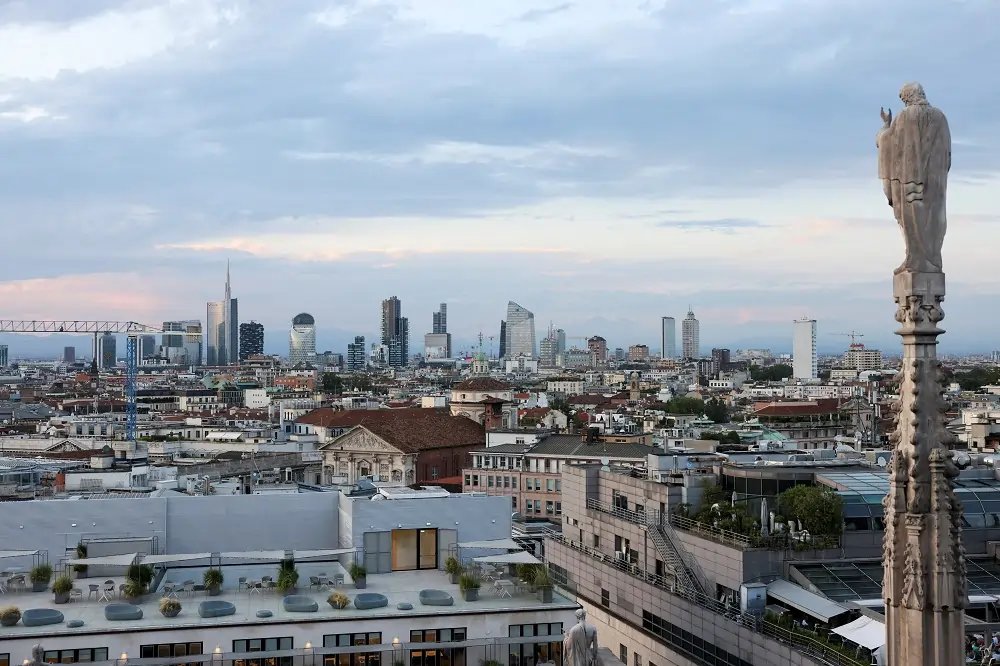Italy’s tax system under scrutiny as study shows it favours rich
Published by Jessica Weisman-Pitts
Posted on December 2, 2024
5 min readLast updated: January 28, 2026

Published by Jessica Weisman-Pitts
Posted on December 2, 2024
5 min readLast updated: January 28, 2026

By Giuseppe Fonte, Gavin Jones and Alvise Armellini
By Giuseppe Fonte, Gavin Jones and Alvise Armellini
ROME (Reuters) -Italy’s tax system is skewed in a way that lets society’s wealthiest 7% pay proportionately less tax than low and middle-income earners, a new study shows, fuelling inequality and hurting public finances in one of Europe’s most indebted nations.
In advanced countries, the rich, helped by financial advisers and low levies on investments, find ways to maximise returns on capital and reduce their tax bills, and the top 1-2% often pay proportionally less than those below them.
But in Italy the distortions kick in much earlier on the income and wealth scale, according to the study by five economists including former Treasury official Alessandro Santoro.
The paper, which has triggered a debate in the euro zone’s third-largest economy, shows the system is regressive not just for the top 1-2% but for the top 7%, involving medium-high salaries as well as the super-rich.
Progressive taxation means the more you have the more you pay as a proportion of your earnings and assets. The system becomes regressive when this principle is reversed.
“There is evidence that regressivity in Italy is remarkable compared with similar economies and affects incomes above 76,000 euros ($80,000) with wealth of about 450,000 euros,” Santoro told Reuters.
REDUCING INEQUALITY, DEBT
This situation has major consequences for Italy’s broader economy, many economists say.
They say hiking taxation on medium-high and high earners would reduce inequality in a country where poverty has been rising for years and would enable Rome to cut the euro zone’s second-biggest debt pile.
Alternatively, it could provide room to cut taxes for lower earners who spend proportionately more of their income than the rich, potentially helping consumption and growth in the currency bloc’s most chronically sluggish economy.
A Treasury spokesperson said the government was against raising taxes and pointed to tax cuts for lower and middle earners in Rome’s 2025 budget.
Italy is a relatively high-tax country, with levies of all types amounting to 41.5% of gross domestic product. But the burden is unevenly spread.
The country has low taxation on some property and financial assets that are typical sources of income for the wealthy, favourable rates for the self-employed, and negligible inheritance tax.
Meanwhile, low paid workers in Italy lose more of their gross wages to tax and social security contributions than in any other EU country, European Commission data shows.
“We have chosen an extremist mix of tax rates,” said Marco Leonardi, economics professor at Milan’s Statale University and a former aide to Prime Minister Giorgia Meloni’s predecessor Mario Draghi.
Most financial investments are taxed from as low as 12.5% to 26%, rent on property can be taxed at a flat rate of 21%, and there is no taxation on people’s primary homes.
The self-employed, a bedrock of support for Meloni’s right-wing government, can pay just 15% on annual income of up to 85,000 euros, whereas the highest tax band of 43% for payroll workers applies to income above 50,000 euros per year.
Fifty years ago, Italy’s top income tax rate, applied on the very highest earners, stood at 72%.
MIDDLE CLASS BURDEN
As a result of these distortions, people earning between 29,000 and 75,000 euros per year, who account for 21% of taxpayers, contribute more than 40% of income tax revenues, Treasury data shows.
Inheritance tax yields just 1 billion euros per year, compared with around 18 billion in France and 9 billion in Germany and Britain.
“Inheritance tax is so low as to be insignificant,” said Leonardi, adding that Meloni could fund tax cuts for middle earners through even a marginal increase in this levy.
The government, under pressure to ease the burden on the middle classes, is struggling to find 2.5 billion euros in its 2025 budget to cut taxes for those earning 50,000-60,000 euros.
Meloni shows no intention of finding the cash by targeting Italy’s better-off, though she recently doubled a contested “flat tax” on income earned abroad which is intended to attract millionaires to the country.
Mariana Mazzucato, an economics professor at University College London and policy adviser to governments, told Reuters flat taxes of all types were regressive and bad for revenue.
“In a country like Italy, with growing inequality, they are just absurd,” she said.
The government argues that flat taxes, or similar schemes such as the single 15% rate for the self-employed, simplify the system and help reduce tax evasion.
Santoro urged a tax on wealth owned by the top 1%, or even just the top 0.1%, that could yield up to 12 billion euros per year.
The first group amounts to some 500,000 people holding assets of more than 2 million euros, while the 0.1% of Italy’s richest equates to 50,000 people with assets of more than 15 million euros.
($1 = 0.9475 euros)
(Additional reporting and graphics by Stefano Bernabei, Editing by Hugh Lawson)
A regressive tax is a tax that takes a larger percentage from low-income earners than from high-income earners, leading to increased inequality.
Progressive taxation is a tax system where the tax rate increases as the taxable amount increases, meaning higher earners pay a larger percentage of their income.
Income tax is a tax imposed on individuals or entities based on their income or profits, typically calculated as a percentage of earnings.
Explore more articles in the Finance category
